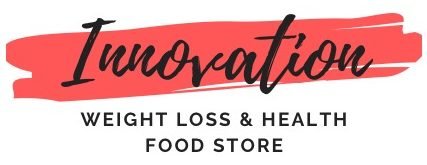Do We Have To Be Hungry To Lose Weight?
One of the biggest concerns for people about to start a weight loss program and people trying to reach their goals is hunger. If we could eat healthy and correct size portions and not feel hungry, losing weight would be significantly easier. Many of us enjoy eating healthy foods, but when we are left feeling unsatisfied we go off plan. The physical hunger pangs affect us mentally – we think we need to eat as soon as we feel even a little bit hungry. Fighting these feelings can be some of the hardest moments on our weight loss journey. But often times, over eating and constant snacking are just bad habits we need to break.
When it comes to weight loss and eating healthy, feeling hungry a couple times a day is normal. This doesn’t mean feeling starving or constantly hungry – your meals and snacks should leave you feeling full for a reasonable amount of time. Meals should leave you feeling satisfied and energized for 3-5 hours and they should never be skipped. Drastically reducing your food intake and going to extremes is never good. Under eating can cause you to feel feeble and frail, can deprive your muscle of the nourishment they need and can also cause you to binge. You should never feel weak or lightheaded, but eating as soon as you feel mild hunger isn’t necessary. Feeling hungry lets you know when it’s time to refuel and it also lets you know that you are balanced.
It can be hard to understand, but mild hunger actually is a good thing because it also indicates that you aren’t over eating. Many of us have been over eaters, either eating huge meals or constantly snacking all day, or both. This is unhealthy for many reasons, and feeling hungry lets us know that we aren’t over eating anymore. Eating meals that leave us feeling stuffed will stretch out our stomachs and make it harder to eat the right portions. It makes it so every time we eat, it feels like we haven’t eaten enough because our stomachs are used to eating more. It takes some time, but soon your stomach will adjust. Your body should be able to digest and use up the food you eat, otherwise you are gaining. That’s why even eating too much of a healthy food isn’t good for weight loss. If you are constantly consuming you can’t lose.
A healthy and disciplined eating routine will keep you nourished and keep you from over or under eating. Feeding your body clean foods for fuel and staying hydrated is the best thing for your weight loss. You will feel lighter and fitter, and soon it will show on the scale. So next time hunger happens, don’t immediately feed into it. Try and control it and remember it’s one of the challenges of making a healthy change.
~Love to Live Healthy with Josephine Fitzpatrick
Innovation Weight Loss and Fitness
8031 Jericho Tpke Woodbury, NY 11797
469 7th Ave Manhattan, NY 10018




